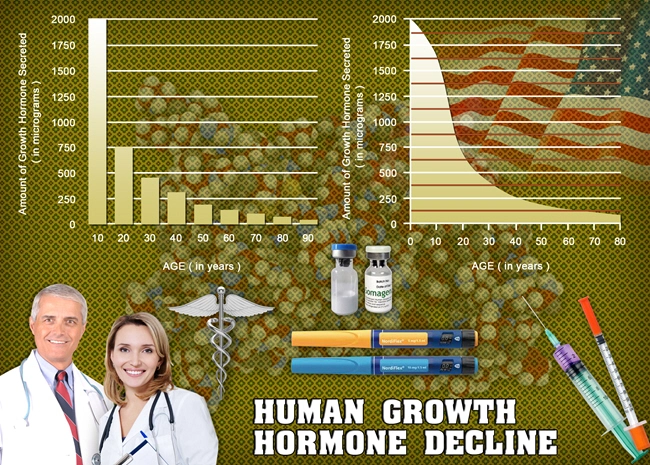
Introduction
Premature ejaculation (PE) is a common sexual dysfunction that affects a significant number of men worldwide, including in the United States. This condition can lead to considerable distress and impact the quality of life for those affected. Recent research has begun to explore the potential connections between PE and mental health disorders. A comprehensive study involving over 1,000 American men sheds light on this correlation, providing valuable insights into the interplay between sexual health and psychological well-being.
Study Methodology
The study in question was conducted with a sample size of 1,050 American men aged between 18 and 65. Participants were recruited from various regions across the United States to ensure a diverse demographic representation. The research employed a mixed-methods approach, combining quantitative surveys with qualitative interviews to gather comprehensive data on the prevalence of PE and its association with mental health disorders.
Participants were assessed for PE using the International Society for Sexual Medicine (ISSM) criteria, which define PE as ejaculation that always or nearly always occurs prior to or within about one minute of vaginal penetration. Additionally, mental health assessments were conducted using standardized tools such as the Beck Depression Inventory (BDI) and the Generalized Anxiety Disorder 7-item (GAD-7) scale.
Findings on Premature Ejaculation and Mental Health
The study revealed a significant correlation between PE and various mental health disorders. Specifically, 42% of men diagnosed with PE also reported symptoms of depression, compared to only 18% of men without PE. Similarly, 35% of men with PE exhibited signs of generalized anxiety disorder, in contrast to 20% of those without the condition.
Impact of Mental Health on Sexual Function
Further analysis indicated that the severity of mental health symptoms was directly related to the frequency and intensity of PE. Men with higher scores on the BDI and GAD-7 scales reported more severe cases of PE, suggesting that mental health issues may exacerbate sexual dysfunction. This finding underscores the importance of addressing mental health as part of a holistic approach to treating PE.
Psychological Factors Contributing to Premature Ejaculation
The qualitative component of the study provided deeper insights into the psychological factors contributing to PE. Many participants reported feelings of performance anxiety, low self-esteem, and fear of sexual failure, which they believed contributed to their PE. These findings highlight the role of psychological stress and negative self-perception in the development and persistence of PE.
Clinical Implications and Treatment Approaches
The study's results have significant implications for clinical practice. Healthcare providers should consider screening men with PE for underlying mental health disorders. Integrated treatment approaches that address both sexual dysfunction and mental health could improve outcomes for affected individuals. Cognitive-behavioral therapy (CBT), mindfulness techniques, and pharmacological interventions may be effective in managing both PE and associated mental health issues.
Conclusion
The correlation between premature ejaculation and mental health disorders in American men is a critical area of study that warrants further attention. The findings from this large-scale study emphasize the need for a comprehensive approach to treating PE, one that considers the psychological as well as the physiological aspects of the condition. By addressing the underlying mental health issues, healthcare providers can offer more effective and holistic care to men struggling with premature ejaculation.
Future Research Directions
Future research should focus on longitudinal studies to better understand the causal relationships between PE and mental health disorders. Additionally, exploring the effectiveness of integrated treatment models could provide valuable insights into improving patient outcomes. As the field continues to evolve, it is crucial to maintain a focus on the interconnected nature of sexual health and mental well-being.
Contact Us Today For A Free Consultation
Dear Patient,
Once you have completing the above contact form, for security purposes and confirmation, please confirm your information by calling us.
Please call now: 1-800-380-5339.
Welcoming You To Our Clinic, Professor Tom Henderson.

- Unravelling the Rush: Unmasking the Realm of Premature Ejaculation [Last Updated On: February 25th, 2025] [Originally Added On: February 25th, 2025]
- Confronting the Clock: Understanding the Science of Premature Ejaculation [Last Updated On: February 26th, 2025] [Originally Added On: February 26th, 2025]
- Unveiling the Mystery: The Underlying Causes of Premature Ejaculation [Last Updated On: February 27th, 2025] [Originally Added On: February 27th, 2025]
- Unraveling the Complexity of Performance: The Psychological Underpinnings of Premature Ejaculation [Last Updated On: February 28th, 2025] [Originally Added On: February 28th, 2025]
- Mastering the Art of Long-lasting Intimacy: An In-depth Look at Techniques to Delay Ejaculation [Last Updated On: February 28th, 2025] [Originally Added On: February 28th, 2025]
- Premature Ejaculation: Debunking Myths and Providing Facts for American Men [Last Updated On: March 1st, 2025] [Originally Added On: March 1st, 2025]
- Sorting Through the Shadows: Debunking the Misconceptions About Premature Ejaculation [Last Updated On: March 1st, 2025] [Originally Added On: March 1st, 2025]
- Introduction Into Early Emission Hormonal Disorders [Last Updated On: March 2nd, 2025] [Originally Added On: March 2nd, 2025]
- Comprehensive Overview of Premature Ejaculation: Causes, Diagnosis, and Treatment Options [Last Updated On: March 3rd, 2025] [Originally Added On: March 3rd, 2025]
- Understanding Premature Ejaculation: Impacts and Management Strategies [Last Updated On: March 4th, 2025] [Originally Added On: March 4th, 2025]
- Comprehensive Guide to Understanding and Managing Premature Ejaculation [Last Updated On: March 5th, 2025] [Originally Added On: March 5th, 2025]
- Understanding and Managing Delayed Ejaculation: Psychological and Behavioral Strategies [Last Updated On: March 6th, 2025] [Originally Added On: March 6th, 2025]
- Managing Performance Anxiety in Premature Ejaculation: Strategies for Psychological and Physical Well-being [Last Updated On: March 7th, 2025] [Originally Added On: March 7th, 2025]
- Mastering the Clock: Hormonal Influences on Ejaculatory Control and Premature Ejaculation in American Men [Last Updated On: March 7th, 2025] [Originally Added On: March 7th, 2025]
- Unraveling the Mystery: A Deep Dive into Premature Ejaculation in American Men [Last Updated On: March 7th, 2025] [Originally Added On: March 7th, 2025]
- Comprehensive Guide to Managing Premature Ejaculation for American Men: Causes, Treatment, and Coping [Last Updated On: March 8th, 2025] [Originally Added On: March 8th, 2025]
- Managing Premature Ejaculation: Natural Remedies and Behavioral Techniques for Male Sexual Health [Last Updated On: March 9th, 2025] [Originally Added On: March 9th, 2025]
- Exploring the Dual-Use Potential of Erectile Dysfunction Medications in Treating Premature Ejaculation [Last Updated On: March 12th, 2025] [Originally Added On: March 12th, 2025]
- Mastering Your Heartbeat: Techniques for American Males to Gain Control Over Rapid Heart Rhythms [Last Updated On: March 13th, 2025] [Originally Added On: March 13th, 2025]
- Mindfulness and Mastery: Transforming Premature Ejaculation Through Conscious Control [Last Updated On: March 15th, 2025] [Originally Added On: March 15th, 2025]
- Managing Premature Ejaculation: Communication, Techniques, and Professional Support for American Men [Last Updated On: March 18th, 2025] [Originally Added On: March 18th, 2025]
- Nervous System's Role in Premature Ejaculation: Causes, Treatments, and Future Research [Last Updated On: March 18th, 2025] [Originally Added On: March 18th, 2025]
- Managing Premature Ejaculation: Diet, Exercise, Stress, Sleep, and Communication Strategies for American Males [Last Updated On: March 19th, 2025] [Originally Added On: March 19th, 2025]
- Managing Premature Ejaculation: Fast Forward and Slow Down Approaches for American Men [Last Updated On: March 20th, 2025] [Originally Added On: March 20th, 2025]
- Managing Premature Ejaculation: A Holistic Approach to Sexual Health [Last Updated On: March 20th, 2025] [Originally Added On: March 20th, 2025]
- Managing Premature Ejaculation: Medical, Behavioral, and Lifestyle Approaches for American Males [Last Updated On: March 20th, 2025] [Originally Added On: March 20th, 2025]
- Effective Techniques for Managing Premature Ejaculation in American Males [Last Updated On: March 20th, 2025] [Originally Added On: March 20th, 2025]
- Anxiety's Role in Premature Ejaculation: Insights and Management Strategies for American Men [Last Updated On: March 20th, 2025] [Originally Added On: March 20th, 2025]
- Premature Ejaculation's Social Impact: Psychological, Relational, and Professional Effects on American Men [Last Updated On: March 20th, 2025] [Originally Added On: March 20th, 2025]
- Managing Premature Ejaculation in Casual Relationships: Strategies for American Men [Last Updated On: March 21st, 2025] [Originally Added On: March 21st, 2025]
- Physical Fitness Boosts Sexual Health, Helps Manage Premature Ejaculation in Men [Last Updated On: March 21st, 2025] [Originally Added On: March 21st, 2025]
- Dietary Strategies to Manage Premature Ejaculation in American Men [Last Updated On: March 21st, 2025] [Originally Added On: March 21st, 2025]
- Countdown Challenge: Exercises to Overcome Premature Ejaculation in American Men [Last Updated On: March 21st, 2025] [Originally Added On: March 21st, 2025]
- Premature Ejaculation: Emotional, Financial Impacts and Treatment Options for American Men [Last Updated On: March 22nd, 2025] [Originally Added On: March 22nd, 2025]
- Premature Ejaculation: Causes, Diagnosis, and Effective Treatment Options for American Men [Last Updated On: March 23rd, 2025] [Originally Added On: March 23rd, 2025]
- Sleep's Role in Enhancing Sexual Stamina and Managing Premature Ejaculation in American Males [Last Updated On: March 23rd, 2025] [Originally Added On: March 23rd, 2025]
- Understanding and Managing Premature Ejaculation: A Holistic Approach for American Men [Last Updated On: March 23rd, 2025] [Originally Added On: March 23rd, 2025]
- Breaking the Silence on Premature Ejaculation: Empowering American Men [Last Updated On: March 23rd, 2025] [Originally Added On: March 23rd, 2025]
- Exploring Non-Pharmacological Strategies for Managing Premature Ejaculation in American Men [Last Updated On: March 24th, 2025] [Originally Added On: March 24th, 2025]
- Managing Premature Ejaculation: A Patient's Journey to Control and Confidence [Last Updated On: March 24th, 2025] [Originally Added On: March 24th, 2025]
- Transforming Premature Ejaculation into Deeper Intimacy and Connection [Last Updated On: March 24th, 2025] [Originally Added On: March 24th, 2025]
- Psychological Interventions for Premature Ejaculation in American Men: A Comprehensive Guide [Last Updated On: March 24th, 2025] [Originally Added On: March 24th, 2025]
- Understanding Premature Ejaculation: Biological, Psychological, and Treatment Insights [Last Updated On: March 24th, 2025] [Originally Added On: March 24th, 2025]
- Managing Premature Ejaculation: Understanding and Overcoming Sexual Dysfunction in American Males [Last Updated On: March 24th, 2025] [Originally Added On: March 24th, 2025]
- Overcoming Premature Ejaculation: Success Stories and Strategies for American Men [Last Updated On: March 24th, 2025] [Originally Added On: March 24th, 2025]
- Enhancing Sexual Endurance: Patience and Techniques for Overcoming Premature Ejaculation [Last Updated On: March 24th, 2025] [Originally Added On: March 24th, 2025]
- Managing Premature Ejaculation: Strategies and Solutions for American Men [Last Updated On: March 25th, 2025] [Originally Added On: March 25th, 2025]
- Managing Premature Ejaculation: A Holistic Approach to Enhancing Sexual Endurance [Last Updated On: March 25th, 2025] [Originally Added On: March 25th, 2025]
- Managing Premature Ejaculation: Techniques and Strategies for American Men [Last Updated On: March 25th, 2025] [Originally Added On: March 25th, 2025]
- Tech Advances in Managing Premature Ejaculation: Apps and Digital Tools [Last Updated On: March 25th, 2025] [Originally Added On: March 25th, 2025]
- Foreplay Techniques to Manage Premature Ejaculation in American Males [Last Updated On: March 25th, 2025] [Originally Added On: March 25th, 2025]
- CBT: A Promising Approach to Managing Premature Ejaculation in American Men [Last Updated On: March 26th, 2025] [Originally Added On: March 26th, 2025]
- Biofeedback: A Promising Solution for Premature Ejaculation in American Men [Last Updated On: March 26th, 2025] [Originally Added On: March 26th, 2025]
- Advancements in Managing Premature Ejaculation: New Therapies and Holistic Approaches [Last Updated On: March 26th, 2025] [Originally Added On: March 26th, 2025]
- Medications' Impact on Ejaculatory Speed: Insights for Managing Premature Ejaculation [Last Updated On: March 26th, 2025] [Originally Added On: March 26th, 2025]
- Premature Ejaculation: Global Insights, Treatment Options for American Men [Last Updated On: March 26th, 2025] [Originally Added On: March 26th, 2025]
- Premature Ejaculation: Causes, Impacts, and Management Strategies for American Men [Last Updated On: March 26th, 2025] [Originally Added On: March 26th, 2025]
- Managing Premature Ejaculation Through Enhanced Communication and Trust [Last Updated On: March 27th, 2025] [Originally Added On: March 27th, 2025]
- Stress Reduction Strategies for American Men to Manage Premature Ejaculation [Last Updated On: March 27th, 2025] [Originally Added On: March 27th, 2025]
- Managing Premature Ejaculation: Exercises, Techniques, and Holistic Approaches for American Men [Last Updated On: March 27th, 2025] [Originally Added On: March 27th, 2025]
- Herbal Remedies for Premature Ejaculation: A Holistic Approach for American Males [Last Updated On: March 28th, 2025] [Originally Added On: March 28th, 2025]
- Managing Premature Ejaculation: Self-Help Strategies and Professional Guidance for American Men [Last Updated On: March 28th, 2025] [Originally Added On: March 28th, 2025]
- Couples' Guide to Managing Premature Ejaculation Together [Last Updated On: March 28th, 2025] [Originally Added On: March 28th, 2025]
- Navigating Premature Ejaculation: Treatments and Strategies for American Men [Last Updated On: March 28th, 2025] [Originally Added On: March 28th, 2025]
- Managing Premature Ejaculation: Effective Pause Technique and Complementary Strategies [Last Updated On: March 28th, 2025] [Originally Added On: March 28th, 2025]
- Managing Premature Ejaculation: A Holistic Approach for American Men [Last Updated On: March 28th, 2025] [Originally Added On: March 28th, 2025]
- Understanding and Managing Premature Ejaculation: A Comprehensive Guide [Last Updated On: March 28th, 2025] [Originally Added On: March 28th, 2025]
- Premature Ejaculation: Age-Specific Management Strategies for American Males [Last Updated On: March 28th, 2025] [Originally Added On: March 28th, 2025]
- Expert Insights on Premature Ejaculation: Causes, Diagnosis, and Treatment Strategies [Last Updated On: March 29th, 2025] [Originally Added On: March 29th, 2025]
- Exploring the Link Between ED and PE: Causes, Connections, and Treatments for American Men [Last Updated On: March 30th, 2025] [Originally Added On: March 30th, 2025]
- Managing Premature Ejaculation: Causes, Techniques, and Treatments for American Men [Last Updated On: March 31st, 2025] [Originally Added On: March 31st, 2025]
- Managing Premature Ejaculation: Insights and Strategies for American Men [Last Updated On: March 31st, 2025] [Originally Added On: March 31st, 2025]
- Effective Treatments for Premature Ejaculation: A Comprehensive Guide for American Males [Last Updated On: April 3rd, 2025] [Originally Added On: April 3rd, 2025]
- Controlled Breathing: A Natural Approach to Managing Premature Ejaculation in American Men [Last Updated On: April 3rd, 2025] [Originally Added On: April 3rd, 2025]
- Overcoming Premature Ejaculation: American Men's Journey to Sexual Confidence and Health [Last Updated On: April 4th, 2025] [Originally Added On: April 4th, 2025]
- Prostate Health's Impact on Premature Ejaculation: Causes and Treatments [Last Updated On: April 5th, 2025] [Originally Added On: April 5th, 2025]
- Understanding and Managing Premature Ejaculation: Causes, Treatments, and Lifestyle Impacts [Last Updated On: April 6th, 2025] [Originally Added On: April 6th, 2025]
- Testosterone's Impact on Ejaculatory Control and Premature Ejaculation in American Males [Last Updated On: April 6th, 2025] [Originally Added On: April 6th, 2025]
- Innovative Therapies and Technologies Transforming Premature Ejaculation Management [Last Updated On: April 8th, 2025] [Originally Added On: April 8th, 2025]
- Managing Premature Ejaculation: Integrating Psychological Techniques and Medical Interventions [Last Updated On: April 9th, 2025] [Originally Added On: April 9th, 2025]








